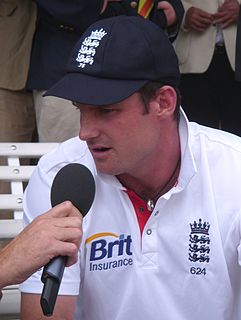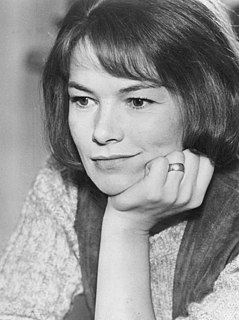A Quote by Niels Bohr
We are trapped by language to such a degree that every attempt to formulate insight is a play on words.
Related Quotes
Sometimes you have a flash of insight, but it's not strong enough to survive. Therefore in the practice of Buddhism, samadhi is the power to maintain insight alive in every moment, so that every speech, every word, every act will bear the nature of that insight. It is a question of cleaning. And you clean better if you are surrounded by those who are practicing exactly the same.
It has not been definitively proved that the language of words is the best possible language. And it seems that on the stage, which is above all a space to fill and a place where something happens, the language of words may have to give way before a language of signs whose objective aspect is the one that has the most immediate impact upon us.
Intimacy is not trapped within words. It passes through words. It passes. The truth is that intimates leave the room. Doors close. Faces move away from the window. Time passes. Voices recede into the dark. Death finally quiets the voice. And there is no way to deny it. No way to stand in the crowd, uttering one's family language.
We believe we can also show that words do not have exactly the same psychic "weight" depending on whether they belong to the language of reverie or to the language of daylight life-to rested language or language under surveillance-to the language of natural poetry or to the language hammered out by authoritarian prosodies.
As a poet and writer, I deeply love and I deeply hate words. I love the infinite evidence and change and requirements and possibilities of language; every human use of words that is joyful, or honest or new, because experience is new... But as a Black poet and writer, I hate words that cancel my name and my history and the freedom of my future: I hate the words that condemn and refuse the language of my people in America.
Sound words can't be understood through formal study of the language alone. They're felt when you immerse yourself in the culture or lifestyle that becomes a part of you. The Japanese language is abundant with onomatopoeia. Even though I've lived in Japan a long time, sound words are still an uncertain territory. And I think new words are being created every day. Even when I don't know a word I can sometimes connect it to a meaning using the sensations produced by the sounds, which feels like I'm playing with words.



































